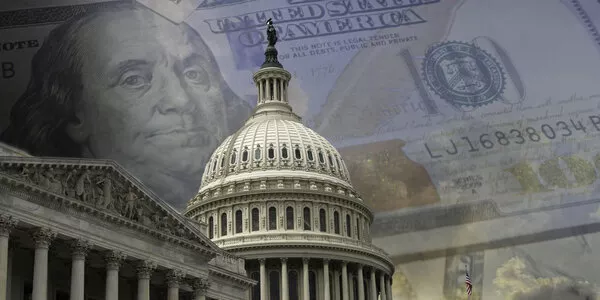
Weekly Update - Are we there yet?
Central banks were first out of the gate as they observed a rapid tightening of financial conditions as credit spreads widened and equity markets tumbled. The US Federal Reserve (Fed) cut the lower bound of its target range for rates to zero, the Bank of England (BoE) cut its base rate to the lowest level since it was established in 1694 while the People’s Bank of China (PBoC) has cut reserve requirement ratios (which limit lending capacity) for banks serving small and medium-sized enterprises.
And central banks’ appetite for asset purchases has been sharpened – the European Central Bank has launched a pandemic emergency programme taking its planned buying to over €1tn this year and has waived issuer limits; the Fed has also removed limits on its purchases, taking its total holdings from $4.2tn in late February to $5.8tn on April 1, a 40% increase in only 5 weeks; and the BoE has boosted its own programme total by 45%.
Government support has come in various forms but most programmes focus on loan guarantees and direct support for businesses, with some adding cash payments to households. In the euro zone, national programmes total over €2.02tn so far – some 17% of aggregate GDP – while we await coordinated support from the European Union for the most-affected countries.
The latest US plan reached $2.2tn – around 10% of GDP – and President Trump has already called for a separate infrastructure investment plan of $2tn.
These measures are designed to deal with the current emergency – central banks to keep liquidity flowing through financial markets, and governments to ensure businesses and households can cope with the enforced inactivity and lack of revenues – but President Trump is right that more will need to be done to pull economies out of this recession.
Already, the containment measures are exacting a heavy toll on labour markets. The last two weeks of initial jobless claims in the US have seen 10 million new applications for unemployment benefits – the previous weekly record in 1982 was only 695,000 – to be compared to total payroll employment at end-February of 152.5 million workers. In Spain, the total of workers registering for benefits in March hit 302,300 – consensus expectations were for 30,000 – adding almost 10% to Spain’s total number of unemployed workers almost overnight.
In addition, today brought the final confidence surveys of purchasing managers (known as the PMIs) for March. The euro zone composite – covering manufacturing and services – hit 29.7, far below the 50.0 level which marks the dividing line between economic expansion and contraction. In Italy, the composite PMI tumbled to 20.2, down from 50.7 in February and easily the lowest level reached in any country in the history of such surveys.
Bottom line. The US and European economies have entered what is likely to be one of the sharpest recessions in history, prompting unprecedented easing measures by governments and central banks. Recent trends in new confirmed CoViD-19 cases in Italy and Spain have raised hopes that the worst of the pandemic may be behind us, but economies still face several more weeks of shutdown and quarantine. The recovery once restrictions are lifted is likely to be gradual – as is shown in China where activity is still only around 80-85% of last year’s levels – meaning that more fiscal and budget easing may be necessary. With economic data set to deteriorate further, we continue to suggest a defensive stance in portfolio allocations.
Read full article





